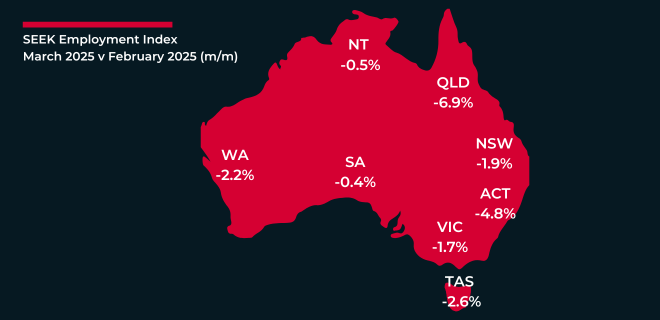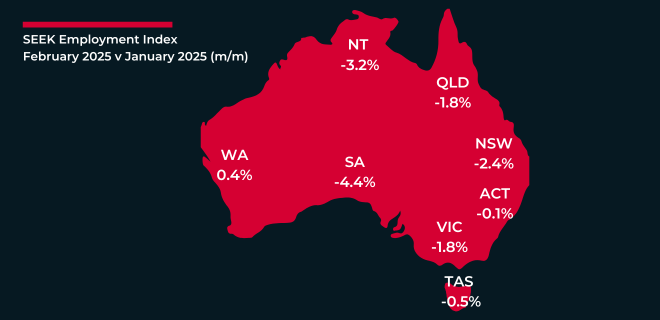Important changes to Fixed-Term and Maximum-Term contracts

In December 2022, the Federal Government passed the Fair Work Legislation Amendment (Secure Jobs, Better Pay) Act 2022 (Act), resulting in the biggest industrial relations reforms since the introduction of the Fair Work Act 2009 (Cth) (FW Act) in 2009.
One of the changes arising from the Act was the introduction of restrictions on the use of fixed-term and maximum-term contracts.
What is a fixed-term contract?
A fixed-term employment contract is one which specifies an end date for employment.
What is a maximum-term contract?
A maximum-term contract is similar to a fixed-term contract in that it also specifies an end date for employment, however it also allows the parties to terminate the contract prior to the specified end date.
What are the changes to Fixed-Term and Maximum-Term contracts?
While fixed-term and maximum-term contracts are desirable among employers to use as it allows a business the flexibility to engage staff on a needs basis, the Federal Government has criticised such use of contracts alleging it creates job insecurity where they are used for the same role over an extended period of time or where employees are subject to rolling contract renewals for jobs that would otherwise be permanent.
As a result, the Act has introduced strict limits on the use of fixed-term and maximum-term contracts. The new laws prohibit an employer and an employee from entering into a fixed-term or maximum-term contract in the following circumstances:
- where the contract is for a period greater than two years,
- if the contract provides for an option or right to extend or renew the contract more the employee has been engaged on consecutive fixed-term contracts for the same role and the total engagement is greater than two years.
If an employer enters a contract which contravenes these rules, the term of the contract that provides the contract will terminate at the end of an identifiable period is taken to have no effect (i.e., the employee becomes permanent), however the contravention does not otherwise affect the validity of any other term of the contract. The practical effect of this is that the employee will gain access to unfair dismissal and entitlements to notice of termination, redundancy payments from the start of the employment.
Employers are also required to provide a Fixed-Term Contract Information Statement to all employees entering a fixed-term or maximum-term contract.
What are the penalties?
Entering into a contract that breaches such rules attracts a civil penalty, as does failing to give an employee the Fixed-Term Contract Information Statement. Civil penalties are currently up to $93,900 for a body corporate ($939,000 for a serious contravention) or $18,780 ($187,000 for a serious contravention) for individuals, including individuals who are knowingly involved in a contravention.
An employer who attempts to avoid the new provisions by engaging in any of the following may also be found to have contravened the anti-avoidance provisions contained within the FW Act:
- terminating the employee’s employment to avoid the restrictions on the new limits on fixed-term and maximum-term contracts;
- delay re-engaging an employee;
- not re-engaging an employee and instead engaging another person to perform the same, or substantially similar, work as the employee previously on a fixed-term or maximum-term contract had performed; or
- change the nature of the work or tasks the employee is required to perform.
Where employees and employers have a dispute about a fixed-term or maximum-term contract that cannot be resolved at the workplace level, the Fair Work Commission is empowered to resolve them via conciliation, mediation or consent arbitration. In addition, the Federal Circuit and Family Court of Australia and Magistrates Courts can deal with disputes under the small claims procedure.
The changes to fixed-term and maximum-term contracts only apply to new contracts entered into after 6 December 2023. However, any contract that was in place prior to this date will be counted towards the limits. For example, if an employer enters into a new contract with an employee after 6 December 2023, the contract entered into prior to 6 December 2023 will count towards assessing if there have been more than two contracts (for the purposes of the limits described above).
Are there any exceptions?
There are some exceptions which permit the use of fixed term contracts outside of the limits outlined above. These include, but are not limited to:
- performing a discrete task involving specialised skills;
- undertaking essential work during a peak demand period (such as fruit picking, harvest work or other seasonal work);
- temporarily replacing an employee on leave (such as workers compensation or parental leave;
- apprentices and trainees;
- the performance of work where government funding, or funding of a kind prescribed by the regulations, is payable for a period of more than two years without any reasonable prospect the funding will be renewed after that period; (the funding must relate to the particular role the employee was engaged to perform pursuant to a fixed-term or maximum-term contract. For example, the funding will need to be specifically confined to the actual role the employee was engaged to perform, it will not be enough that an employer receives Government funding for a particular project and has the ability to appoint funding to different areas of the project as it sees fit. Instead, the funding received from the Government will need to specifically outline that it is funding for a particular role/task for an employer to be able to rely on this exception);
- governance positions that have a time limit under the governing rules of a corporation or association; or
- in the year the contract is entered into the employee’s earnings are above the high income threshold (currently $167,500 per annum).
Employers will bear the burden of proving an exception exists if proceedings are commenced for a contravention of the laws.
When do the changes take effect?
The changes take effect from 6 December 2023.
What do businesses need to do to prepare?
Businesses should:
- review the circumstances in which they use fixed-term and maximum-term contracts;
- identify if any exceptions exist and ensure there is sufficient evidence of that exception;
- review fixed-term and maximum-term contract templates to ensure compliance;
- implement review and control mechanisms with respect to the use of fixed-term and maximum-term contracts; and
- ensure the Fixed-Term Contract Information Statement is ready to be sent to all employees who will be engaged pursuant to a fixed-term or maximum-term employment contract from 6 December 2023.
Need assistance?
As a HR specialist, Horner can provide your organisation with more detailed information and advice on what these changes to Fixed-Term and Maximum-Term contracts means for you and your employees. Contact Kylie Heffernan on 03 9604 2888 or email horner@horner.com.au
Source: RCSA

 Job Seekers
Job Seekers Resources
Resources Timesheets
Timesheets Submit a CV
Submit a CV Login
Login Temporary Staffing Solutions
Temporary Staffing Solutions Permanent Recruitment Solutions
Permanent Recruitment Solutions Executive Search
Executive Search Payroll Services
Payroll Services Employer Resources
Employer Resources HR Services
HR Services WHS Consulting
WHS Consulting Outplacement / Career Transition
Outplacement / Career Transition Accounting and Finance
Accounting and Finance Business Support
Business Support Community Services
Community Services Customer Service
Customer Service Engineering
Engineering Events and Exhibitions
Events and Exhibitions Government
Government Healthcare
Healthcare Labour Hire
Labour Hire Manufacturing
Manufacturing Not-for-profit
Not-for-profit Sales and Marketing
Sales and Marketing Warehousing and Logistics
Warehousing and Logistics About us
About us Meet the Team
Meet the Team Blog
Blog Community
Community Join the Team
Join the Team Candidate Timesheet
and Portal Information
Candidate Timesheet
and Portal Information Blog
Blog Join the Team
Join the Team Payroll Services
Payroll Services Timesheets
Timesheets Customer Service
Customer Service Engineering
Engineering Warehousing & Logistics
Warehousing & Logistics

